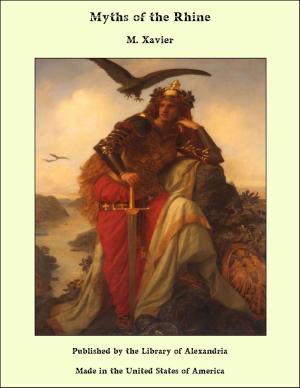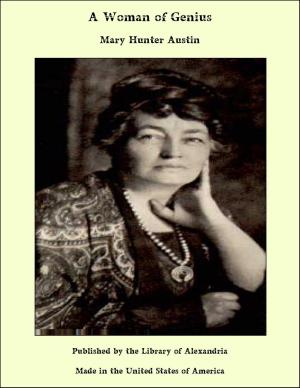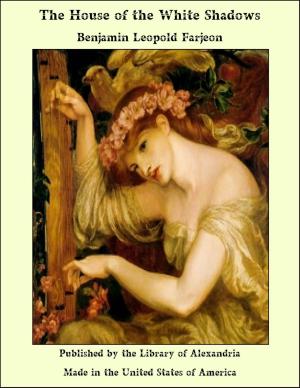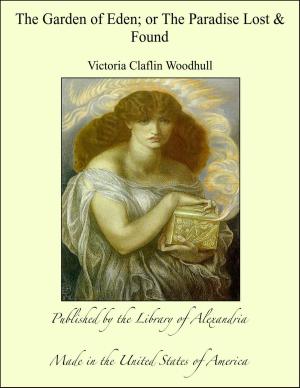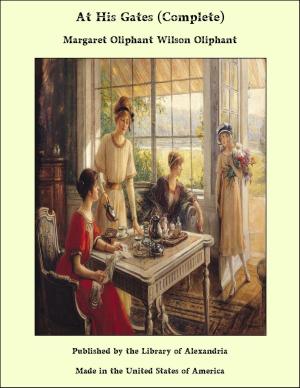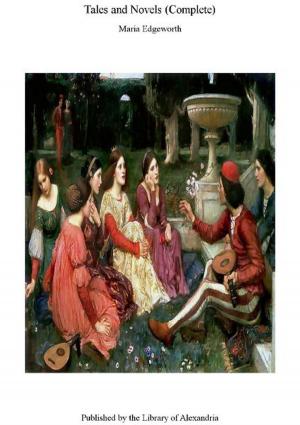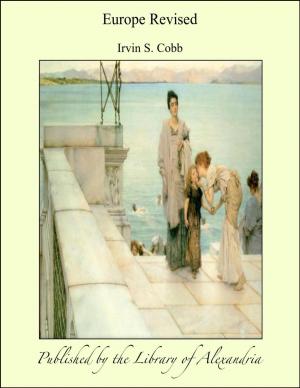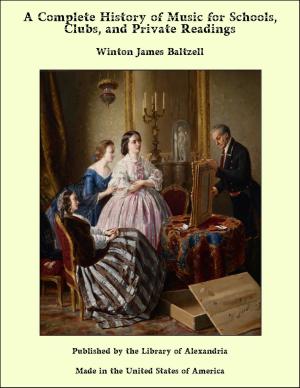Patience Worth: A Psychic Mystery
Nonfiction, Religion & Spirituality, New Age, History, Fiction & Literature| Author: | Casper Salathiel Yost | ISBN: | 9781465611369 |
| Publisher: | Library of Alexandria | Publication: | March 8, 2015 |
| Imprint: | Language: | English |
| Author: | Casper Salathiel Yost |
| ISBN: | 9781465611369 |
| Publisher: | Library of Alexandria |
| Publication: | March 8, 2015 |
| Imprint: | |
| Language: | English |
The women referred to are Mrs. John H. Curran, wife of the former Immigration Commissioner of Missouri, and Mrs. Emily Grant Hutchings, wife of the Secretary of the Tower Grove Park Board in St. Louis, both ladies of culture and refinement. Mrs. Curran is a young woman of nervous temperament, bright, vivacious, ready of speech. She has a taste for literature, but is not a writer, and has never attempted to write anything more ambitious than a personal letter. Mrs. Hutchings, on the other hand, is a professional writer of skill, and it was to her quick appreciation of the quality of the communications that the starting of the record is due. It was soon apparent, however, that it was Mrs. Curran who was the sole agent of transmission; for the communications came only when she was at the board, and it mattered not who else sat with her. During the first months only Mrs. Curran and Mrs. Hutchings sat, but gradually the circle widened, and others assisted Mrs. Curran. Sometimes as many as five or six would sit with her in the course of an evening. Mr. Curran has acted as amanuensis, and recorded the communications at most of the sittings, Mrs. Curran’s mother, Mrs. Mary E. Pollard, occasionally taking his place. The ouija board is a rectangular piece of wood about 16 inches wide by 24 inches in length and half an inch thick. Upon it the letters of the alphabet are arranged in two concentric arcs, with the ten numerals below, and the words “Yes” and “No” at the upper corners. The planchette, or pointer, is a thin, heart-shaped piece of wood provided with three legs, upon which it moves about upon the board, its point indicating the letters of the words it is spelling. Two persons are necessary for its operation. They place the tips of their fingers lightly upon the pointer and wait. Perhaps it moves; perhaps it does not. Sometimes it moves aimlessly about the board, spelling nothing; sometimes it spells words, but is unable to form a sentence; but often it responds readily enough to the impulses which control it, and even answers questions intelligibly, occasionally in a way that excites the wonder and even the awe of those about it. Its powers have been attributed by some to supernatural influence, by others to subconsciousness, but science has looked upon it with disdain, as, until recent years, science has looked upon nearly all unprecedented phenomena. Mr. W. T. Carrington, an eminent English investigator of psychical phenomena, in an exhaustive work upon the subject, has this to say of the ouija board: “Granting for the sake of argument that the board is moved by the sitter, either consciously or unconsciously, the great and vital question still remains: What is the intelligence behind the board, that directs the phenomena? Whoever sets out to give a final and decisive answer to this question in the present state of our knowledge will have his task cut out for him, and I wish him happiness in the undertaking. Personally I am attempting nothing of the kind.”
The women referred to are Mrs. John H. Curran, wife of the former Immigration Commissioner of Missouri, and Mrs. Emily Grant Hutchings, wife of the Secretary of the Tower Grove Park Board in St. Louis, both ladies of culture and refinement. Mrs. Curran is a young woman of nervous temperament, bright, vivacious, ready of speech. She has a taste for literature, but is not a writer, and has never attempted to write anything more ambitious than a personal letter. Mrs. Hutchings, on the other hand, is a professional writer of skill, and it was to her quick appreciation of the quality of the communications that the starting of the record is due. It was soon apparent, however, that it was Mrs. Curran who was the sole agent of transmission; for the communications came only when she was at the board, and it mattered not who else sat with her. During the first months only Mrs. Curran and Mrs. Hutchings sat, but gradually the circle widened, and others assisted Mrs. Curran. Sometimes as many as five or six would sit with her in the course of an evening. Mr. Curran has acted as amanuensis, and recorded the communications at most of the sittings, Mrs. Curran’s mother, Mrs. Mary E. Pollard, occasionally taking his place. The ouija board is a rectangular piece of wood about 16 inches wide by 24 inches in length and half an inch thick. Upon it the letters of the alphabet are arranged in two concentric arcs, with the ten numerals below, and the words “Yes” and “No” at the upper corners. The planchette, or pointer, is a thin, heart-shaped piece of wood provided with three legs, upon which it moves about upon the board, its point indicating the letters of the words it is spelling. Two persons are necessary for its operation. They place the tips of their fingers lightly upon the pointer and wait. Perhaps it moves; perhaps it does not. Sometimes it moves aimlessly about the board, spelling nothing; sometimes it spells words, but is unable to form a sentence; but often it responds readily enough to the impulses which control it, and even answers questions intelligibly, occasionally in a way that excites the wonder and even the awe of those about it. Its powers have been attributed by some to supernatural influence, by others to subconsciousness, but science has looked upon it with disdain, as, until recent years, science has looked upon nearly all unprecedented phenomena. Mr. W. T. Carrington, an eminent English investigator of psychical phenomena, in an exhaustive work upon the subject, has this to say of the ouija board: “Granting for the sake of argument that the board is moved by the sitter, either consciously or unconsciously, the great and vital question still remains: What is the intelligence behind the board, that directs the phenomena? Whoever sets out to give a final and decisive answer to this question in the present state of our knowledge will have his task cut out for him, and I wish him happiness in the undertaking. Personally I am attempting nothing of the kind.”


